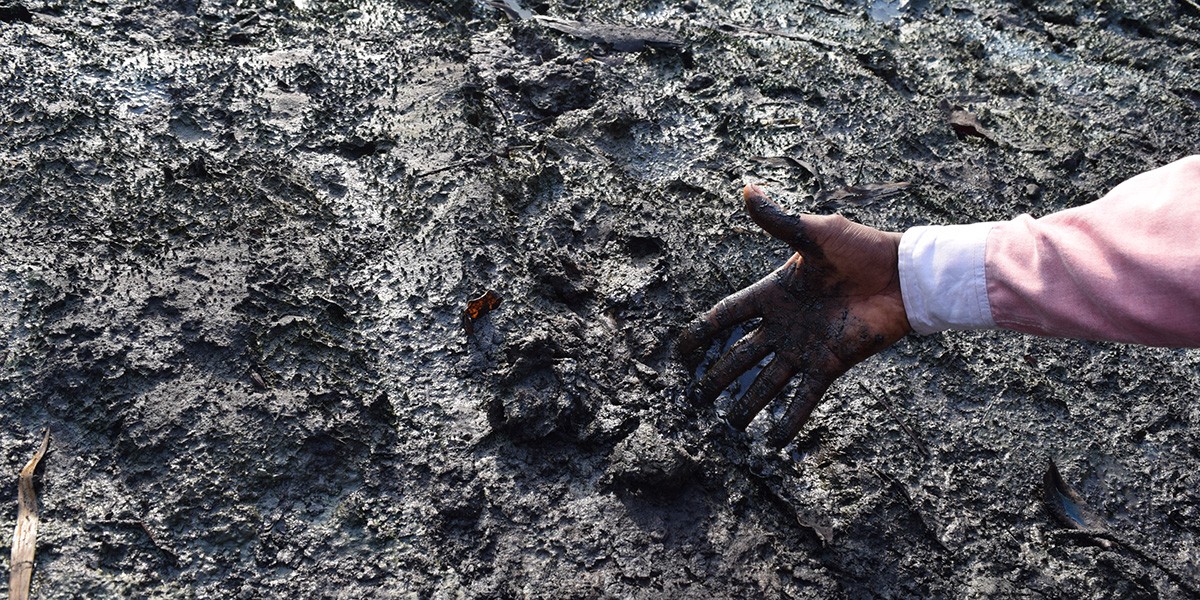The Women's Leadership Centre is grateful to the following donors, who have provided financial and other support for our work.
NO OIL DRILLING IN THE KAVANGO - WHY WE SHOULD LEARN FROM HISTORY AND SAY NO!
Despite failing to conduct bona fide public consultations, the Canadian company ReconAfrica received environmental clearance permits to drill 3 exploration wells and conduct seismic tests in the Kavango regions. Oil and gas production holds great dangers to Namibia and runs contrary to worldwide attempts to move away from fossil fuels like coal, oil and gas, which are major drivers of global warming.
Namibia is a signatory to the Paris Accord on Climate Change and has committed to reduce greenhouse gas emissions by 92% by 2030. This stands in complete contradiction with giving permission to ReconAfrica’s oil and gas exploration. Experts predict that as the world shifts towards alternative renewable energy sources, investments made now into fossil fuel production will soon become “stranded assets”, where promised oil and gas revenues never materialise and bankrupt oil and gas companies leave taxpayers to pay for the big clean-up.
A warning from the Niger Delta
Namibia has just recently been targeted by foreign oil companies. There are many other cases from which we can learn. In 1956, for example, Shell Nigeria discovered the first commercial oil field at Oloibiri in the Niger Delta and started oil exports in 1958. Initially, there were high hopes of huge earnings and jobs but the people in the Niger Delta then realised that they were not benefiting at all. “Oil is a curse” is a constant refrain of the women farmers and fisherwomen in the Niger Delta, where decades of pollution from oil spills and gas flares have killed off fish stocks and destroyed the fertility of the soil. In addition, communities are also seeing their lives and livelihoods destroyed by increasingly frequent and severe flooding, fuelled by the climate crisis.
Protests by the people of the Niger Delta were repeatedly suppressed by the Nigerian government and army, who sided with Shell against the local population. One of the key opponents of the pollution of the Ogoni people’s land and water, Ken Saro-Wiwa, was executed in 1995. Many more protesters have been killed over the past years.
Photos from the Niger Delta
Photos by: Youths and Environmental Advocacy Centre (YEAC), Niger Delta, Nigeria.
Communities in the Niger Delta have used the courts in Nigeria and the United Kingdom to fight for compensation from Shell for the destruction of their environment and livelihoods. In 2015, the oil giant agreed to pay £55million to compensate the 15,600 people in the fishing town of Bodo after multiple oil spills devastated their community.
In other lawsuits brought against them in British and Dutch courts, the oil giant Royal Dutch Shell has argued that it was not responsible for the oil spills and other violations committed by its Nigerian subsidiary. This is an example of how parent companies use their subsidiaries as a shield against liability for human rights abuses occurring in their corporate group.
But while it’s vital to make polluters pay for the damage they’re causing; no amount of compensation will be enough to restore the environment and people’s livelihoods, and cover the mitigation costs of catastrophic climate change.
Max Muyemburuku, chairperson of the Kavango East and West Regional Conservancy and Community Forest Association, recently visited the Niger Delta. He reported: “Oil companies in the Niger Delta promised electricity, roads and schools for the local communities but this never happened. Instead the water was polluted, the fish died, hardship increased, and people developed severe illnesses, including lung and liver failure. This is what we can expect from conventional oil production in the Kavango.”
A poem by Nnimmo Bassey, 1999. Dedicated to Oronto Douglas & the youths of the Niger Delta
WE THOUGHT IT WAS OIL, BUT IT WAS BLOOD
The other day
We danced on the street
Joy in our hearts
We thought we were free
Three young folks fell to our right
Countless more fell to our left
Looking up,
Far from the crowd
We beheld
Red hot guns
We thought it was oil
But it was blood
We thought it was oil
But this was blood
Heart jumping
Into our mouths
Floating on
Emotions dry wells
We leapt with fury
Knowing it wasn't funny
Then we beheld
Bright red pools
We thought it was oil
But it was blood
We thought it was oil
But this was blood
Tears don't flow
When you are scarred
First it was the Ogoni
Today it is Ijaws
Who will be slain this next day?
We see open mouths
But we hear no screams
Standing in a pool
Up to our knees
We thought it was oil
But it was blood
We thought it was oil
But this was blood
Dried tear bags
Polluted streams
Things are real
Only when found in dreams
We see their Shells
Behind military shields
Evil, horrible evil gallows called oilrigs
Drilling our souls
We thought it was oil
But it was blood
We thought it was oil
But this was blood
The heavens are open
Above our head
Toasted dreams in flared
And scrambled sky
A million black holes
In a burnt sky
But we know our dreams
Won't burst like crude pipes
We thought it was oil
But this was blood
We thought it was oil
But this was blood
This we tell you
They may kill all
But the blood will speak
They may gain all
But the soil will RISE
We may die but stay alive
Placed on the slab
Slaughtered by the day
We are the living
Long sacrificed
We thought it was oil
But it was blood
We thought it was oil
But this was blood
Photos from the Niger Delta
Photos by: Amnesty International Nigeria
THE ILLUSION OF JOBS
Just like the oil companies in the Niger Delta and elsewhere, ReconAfrica promised jobs to communities in the Kavango regions. This will simply not happen, as the company will at best provide a few poorly paid and temporary jobs to local people while importing staff with technical skills from elsewhere.
Mining is by its very nature a capital-intensive industry that does not generate a large number of jobs. The entire mining industry in Namibia creates less than 2% of all jobs. There are other economic sectors that have far greater potential for job creation. Namibia’s own national employment policy points to the huge potential of creating new jobs through the beneficiation of agricultural products. Such interventions must focus on food security as well as on agro-based industries for economic diversification and the creation of a large number of permanent jobs. Agriculture-driven industrialisation with forward and backward linkages to other economic sectors will generate far more sustainable jobs than oil production.
Published by the Women’s Leadership Centre for Civil Society Organisations in Namibia.
Contact:
When you subscribe to the blog, we will send you an e-mail when there are new updates on the site so you wouldn't miss them.


